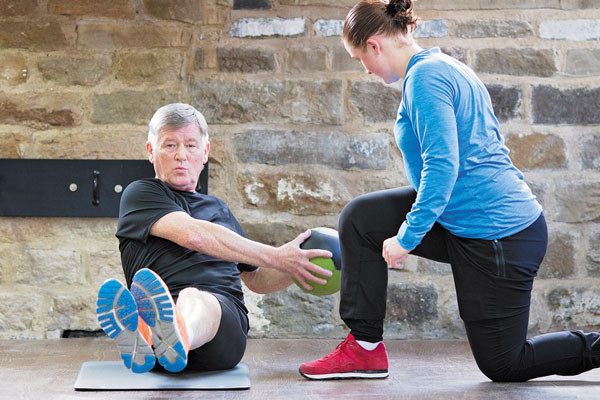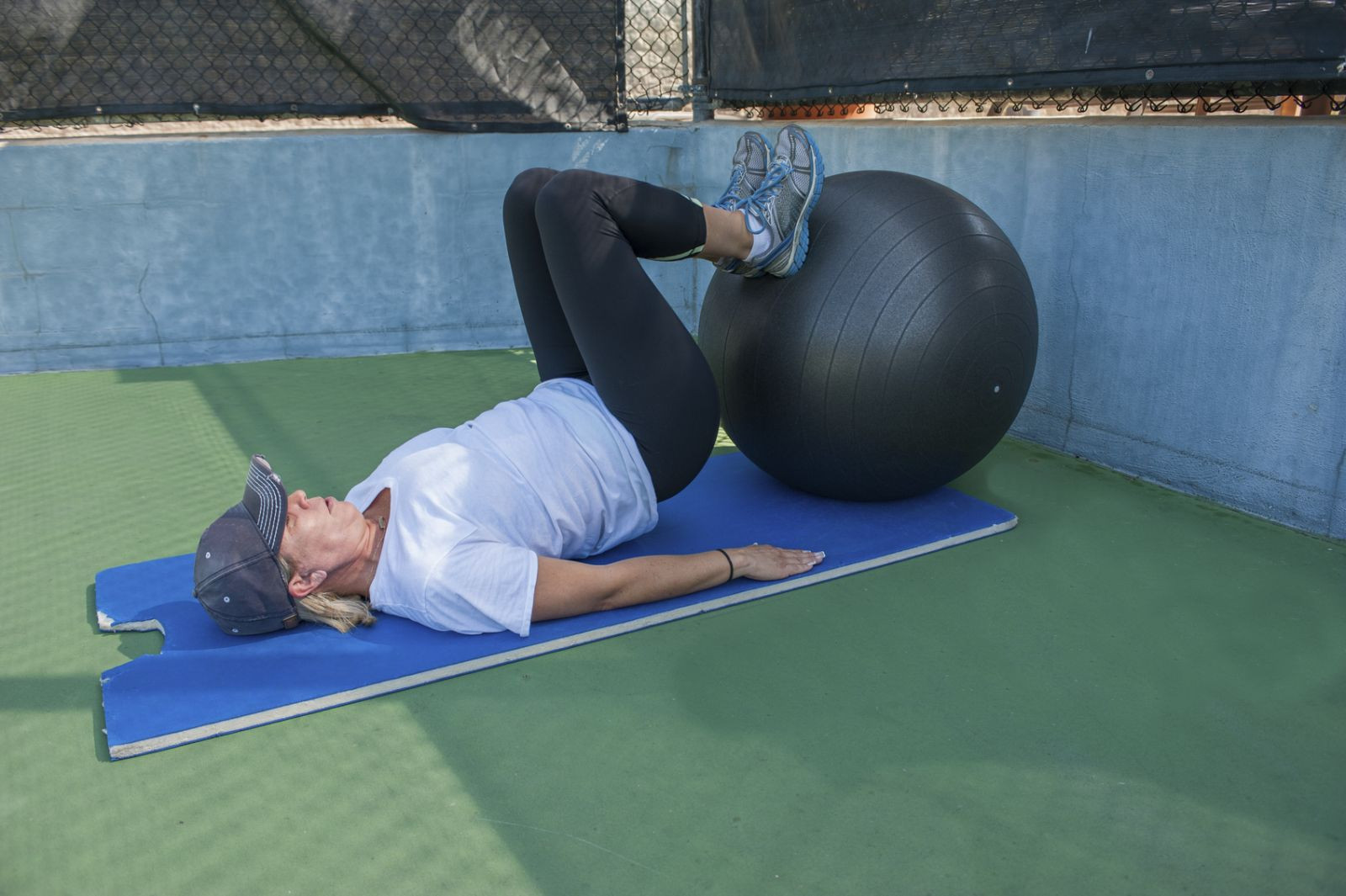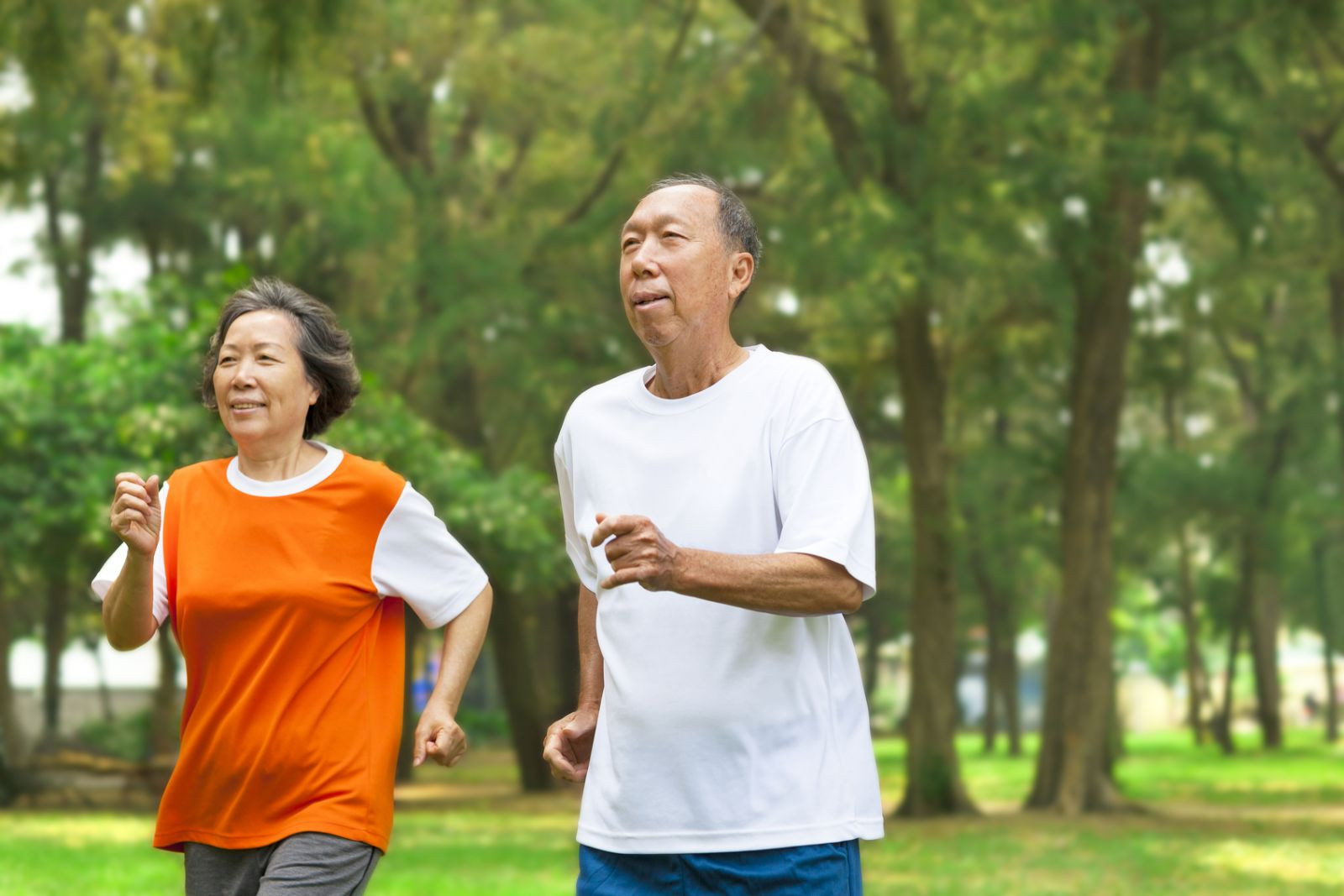
Counting steps is good — is combining steps and heart rate better?

Appendix pain: Could it be appendicitis?

Can saw palmetto treat an enlarged prostate?

How does Ozempic work? Understanding GLP-1s for diabetes, weight loss, and beyond

Zinc: What it does for the body, and the best food sources

Respiratory health harms often follow flooding: Taking these steps can help

Tips to leverage neuroplasticity to maintain cognitive fitness as you age

Can white noise really help you sleep better?

Celiac disease: Exploring four myths

What is prostatitis and how is it treated?
Exercise & Fitness Archive
Articles
Fitness in midlife may fend off strokes later
People who are more physically fit in their mid-to-late 40s may be less likely to have a stroke after age 65 than those who are less fit.
What a personal trainer can do for you
Trainers offer extra motivation to meet your fitness goals.
Image: Barryj13 /Thinkstock
You always want a good return on your investment, especially when you reach retirement age. That goes for your fitness, too. One of the best moves for a lucrative long-term payoff is to invest in a personal trainer.
"The exercises that worked when you were younger probably are not what you need now and going forward," says Vijay A. Daryanani, a certified personal trainer with Harvard-affiliated Spaulding Outpatient Center. "A personal trainer can identify your needs and formulate the proper routine as well as keep you motivated and focused, all of which can help keep you active."
Beating osteoarthritis knee pain: Beyond special shoes
For people suffering from knee osteoarthritis, one long-standing solution to knee pain was the use of “unloading” shoes. These shoes use stiffer soles and slightly tilted insoles that help to reposition the foot and ‘unload,’ or decrease, the pain on the knee. But a new study revealed that these shoes might not be any better than good walking shoes at relieving pain from knee osteoarthritis.
Core exercise workout: 12 tips for exercising safely and effectively
Before you start any kind of exercise regimen, think safety first. Talk to your doctor before you begin any new routine. Monitor yourself when working out to make sure you don't run into trouble and be sure you know the best way to exercise. Here are 12 tips for exercising safely and effectively.
1. Warm up. Before a full core workout, march in place for several minutes while swinging your arms, or dance to a few songs. It's safe to skip this if you've already warmed up through other activities.
3 trends worth tapping into
Activity trackers, farmers' markets, and mindfulness aren't just passing fancies. They can help you develop beneficial health habits.
Image: julia514/iStock
The word "trendy" has come to refer to a fad or fashion that may have little lasting value, so it can be a turn-off, especially when applied to health practices. But trends can also have lasting health benefits—for example, the trends toward making public places smoke-free or adding calorie counts to fast-food menus. There is increasing evidence that the three trends below fall into the "beneficial" category.
1. Wearing activity trackers
2. Shopping at farmers' markets
In the last 30 years, farmers' markets have moved from the sides of rural roads to the centers of major cities and everywhere in between. Although it may be coincidental, farmers' markets are tailor-made for people who are serious about following the 2015–2020 Dietary Guidelines for Americans, which advise a gradual shift to a plant-based diet centered around vegetables, fruits, and whole grains. In one recent study conducted by researchers at Harvard T.H. Chan School of Public Health, when people began to shop at inner-city farmers' markets, they also consumed less sugary soda and more vegetables than they had previously. Farmers' markets offer several other advantages over supermarkets:
Freshness. Just-picked produce is at its peak in flavor and nutrition.
Variety. You may find some fruits or vegetables you haven't seen before or new versions of old standards.
Information. Because the people who sell the produce are likely to have had a hand in growing it, they should be able to tell you the kind of farming methods used and offer suggestions on preparing the food.
Samples. If you're wondering if the cherries are sweet or tart or if the apples are crisp, ask for a sample. Most vendors are happy to comply.
Sustainability. Eating locally or regionally grown produce means less energy is expended bringing it to your table. And supporting regional agriculture is good for your community.
You can find a farmers' market near you by going to the U.S. Department of Agriculture website using the link at www.health.harvard.edu/farmers.
3. Practicing mindfulness
Need a quick brain boost? Take a walk
A brief bout of aerobic exercise can help if you need to stay focused on a task and solve problems more efficiently.
Image: Tomwang112/iStock
It's not news that exercise is good for your body. You can probably recite the litany of physical benefits of regular activity: Exercise helps control your weight, lowers your blood pressure, and dampens inflammation. It reduces the risk of having a heart attack or stroke or of developing diabetes or certain cancers.
But exercise is just as important for your mind. Not only is regular exercise associated with a reduced risk of depression and anxiety, there is mounting evidence that it slows cognitive decline and may reduce the risk of dementia. "There is good evidence that exercise behaves like medicine to improve brain health and thinking skills. There is a growing body of science behind this," says Dr. Scott McGinnis, assistant clinical professor of psychiatry at Harvard Medical School.
Dance your way to better heart health?
Regular, moderate-intensity dancing may lower the risk of dying of cardiovascular disease. Aside from the exercise benefits, dancing is often a lifelong habit and provides stress-lowering social connections.
Exercise-free activities that work your muscles and heart
Dancing, playing sports, and even cleaning your house can give you a nontraditional workout that helps maintain good health.
Image: Jon Feingersh/Thinkstock
Exercising is supposed to be a regular part of your daily health maintenance. That can be a problem if you don't have the motivation to get your heart pumping; you raise your risk for weight gain, chronic disease, and an earlier death.
Fortunately, you can get plenty of effective exercise by engaging in recreational or household activities that work your heart and muscles. "There's a real reward in doing an activity you enjoy, such as swimming or playing with your grandchildren. You get a workout, but it doesn't seem like you're exercising, and you may be more willing to keep doing that activity every day because it's fun," says Dawn Rogers, a physical therapist at Harvard-affiliated Brigham and Women's Hospital.
Could occupational therapy enhance your quality of life?
Get your life back by learning new ways to do once-simple activities that are now challenging.
Image: McIninch/Thinkstock
Occupational therapy (OT) is well known as part of recovery for people who've had a stroke or surgery: it helps them relearn everyday activities and adjust to doing them differently. But OT can also make a difference for people struggling with the physical changes that accompany aging, such as hand arthritis or hip or knee problems that cause pain and problems with mobility. "We teach people how to approach activities differently so they can keep pain under control while doing what they want to do. It's all about maintaining independence," says Allison Pinsince, an occupational therapist at Harvard-affiliated Massachusetts General Hospital.
How OT works
Multiple approaches
Sometimes that adjustment involves training you to use adaptive equipment to make it easier to do everyday activities. "There are so many tools, it can be overwhelming if you don't know exactly what you need," says Pinsince.
For example, there are tools to help you eat if you have trouble gripping: specially shaped utensils, and bowls and plates curved to help you load food onto a fork. There's adaptive equipment to help in the bathroom (shower chairs, raised toilet seats, and aids for hygiene) and to help you dress (long-handled equipment to put on socks and shoes, shirt buttoners, and elastic shoelaces).
OT may also include an exercise program to strengthen muscles around a joint that's so painful it keeps you from performing an activity. The takeaway is that you may not need to suffer. "We can help you do some of the meaningful activities of life more easily," says Pinsince.
More evidence that a healthy lifestyle might help prevent cancer
It appears that four healthy habits—getting 150 minutes of moderate-intensity exercise per week, maintaining a body mass index between 18.5 and 27.5, no smoking, and drinking only in moderation—may prevent many cancer cases and death in white people.

Counting steps is good — is combining steps and heart rate better?

Appendix pain: Could it be appendicitis?

Can saw palmetto treat an enlarged prostate?

How does Ozempic work? Understanding GLP-1s for diabetes, weight loss, and beyond

Zinc: What it does for the body, and the best food sources

Respiratory health harms often follow flooding: Taking these steps can help

Tips to leverage neuroplasticity to maintain cognitive fitness as you age

Can white noise really help you sleep better?

Celiac disease: Exploring four myths

What is prostatitis and how is it treated?
Free Healthbeat Signup
Get the latest in health news delivered to your inbox!
Sign Up











